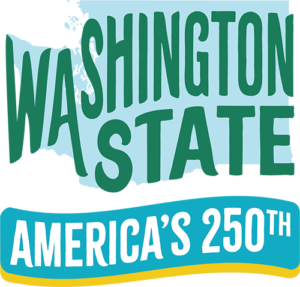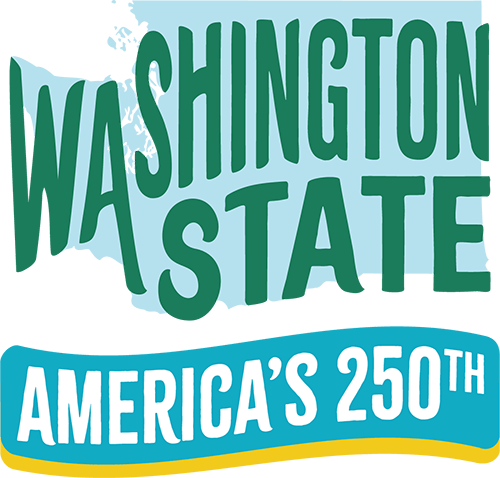Framework
THEMES
Use the following themes to help guide your planning process, to connect with your community using a common approach, and to foster dialogue and civic engagement
WE THE PEOPLE
- What are the pivotal moments in Washington State history?
- How have Washingtonians fought for liberty and equality?
- How can we continue to uphold those values and strengthen and protect our democracy?
- What are the founding principles of democracy and how can these ideals inspire more active and meaningful civic engagement?
- Who has been included, and excluded, in the concept of “we the people” throughout this country and our state's history?
POWER OF PLACE
- What was happening in Washington during and following the Revolutionary era?
- How has the natural environment shaped Washington communities and the stories we tell?
- What environments, sites, and structures are we preserving today, and what should we be preserving?
- What places give Washingtonians a shared sense of identity and community?
- How can we engage the “power of place” to help Washingtonians better understand and reflect on the complexities of our past and the possibilities of our future?
SHARING HISTORY
- How can we tell a more inclusive history? How can more inclusive histories help us better understand the past and build stronger, more connected communities in the future?
- How can we support local and regional history organizations to be sustainable and better serve their communities?
- What new approaches can we use to improve history and civics education in our state?
- How can the study of history help diverse Washingtonians find common ground?
- How can we engage all generations in learning about and appreciating history?
OUTCOMES
As we approach creating resources and programming for the 250th, the committee will use the following outcomes to guide decision making and set priorities.
Connection
All Washingtonians will feel more connected to their history and to democracy, empowering them to engage in productive dialogue that builds stronger communities.
Democracy
All Washingtonians have a better understanding of the foundational principles, structure, and purpose of our democratic system.
Sovereignty
The public will understand the sovereignty of Tribal Nations as well as their presence and impact, since time immemorial, on the land that is now Washington.
Local History
State and local history organizations will have the necessary resources to preserve and interpret relevant and inclusive histories.
Places
Washingtonians are able to recognize, preserve, and better interpret important places that represent relevant and inclusive histories.
Education
History and civics educators will feel supported and empowered to teach the skills required to think critically about the past as a way to better understand the present.
WORKING GROUPS
The Semiquincentennial Committee established the following working groups to engage the broader statewide community and help guide their planning process in the following areas
Engagement
Build a marketing and communications strategy that will connect Washingtonians to state and local history organizations, programming, and education.
Public Programming
Present one-time programming that creates opportunities to reflect on the 250 themes.
Capacity Building
Build capacity across the Washington heritage sector to ensure state and local history is preserved and interpreted for the public in perpetuity.
Education
Grow Washington's capacity to deliver robust history and civics education across the state, especially to K-12 audiences.

